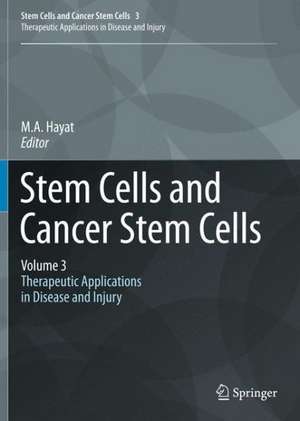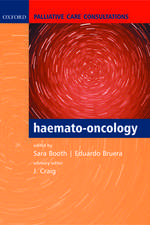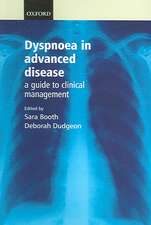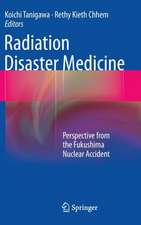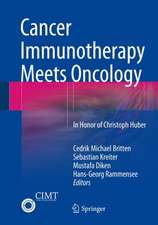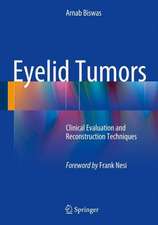Stem Cells and Cancer Stem Cells,Volume 3: Stem Cells and Cancer Stem Cells, Therapeutic Applications in Disease and Injury: Volume 3: Stem Cells and Cancer Stem Cells, cartea 3
Editat de M.A. Hayaten Limba Engleză Paperback – 26 ian 2014
| Toate formatele și edițiile | Preț | Express |
|---|---|---|
| Paperback (1) | 1326.09 lei 38-44 zile | |
| SPRINGER NETHERLANDS – 26 ian 2014 | 1326.09 lei 38-44 zile | |
| Hardback (1) | 1340.15 lei 38-44 zile | |
| SPRINGER NETHERLANDS – 23 noi 2011 | 1340.15 lei 38-44 zile |
Preț: 1326.09 lei
Preț vechi: 1395.88 lei
-5% Nou
Puncte Express: 1989
Preț estimativ în valută:
253.77€ • 263.44$ • 211.61£
253.77€ • 263.44$ • 211.61£
Carte tipărită la comandă
Livrare economică 18-24 martie
Preluare comenzi: 021 569.72.76
Specificații
ISBN-13: 9789400799806
ISBN-10: 9400799802
Pagini: 428
Ilustrații: XXVIII, 400 p.
Dimensiuni: 193 x 260 x 22 mm
Ediția:2012
Editura: SPRINGER NETHERLANDS
Colecția Springer
Seria Stem Cells and Cancer Stem Cells
Locul publicării:Dordrecht, Netherlands
ISBN-10: 9400799802
Pagini: 428
Ilustrații: XXVIII, 400 p.
Dimensiuni: 193 x 260 x 22 mm
Ediția:2012
Editura: SPRINGER NETHERLANDS
Colecția Springer
Seria Stem Cells and Cancer Stem Cells
Locul publicării:Dordrecht, Netherlands
Public țintă
ResearchCuprins
PREFACE.-1. Introduction.-2. Diversity oriented fluorescence library approach for stem cell probe development.-3. Isolation of mesenchymal stem cells from umbilical cord (method).-4. Mesenchymal stem cell isolation and expansion methodology.-5. Hair follicle stem cells.- 6. Rat embryonic cortical neural stem cells: role of hypoxia on cell proliferation and differentiation.-7. Human cord blood-derived hematopoietic stem and progenitor cells: from biology to medicine.-8. Proteomic characterization of mesenchymal stem cell-like populations derived from various tissue types.-9. The roles of nanog during early embryonic development and primordial germ cell migration.-10. Human embryonic stem cells in serum-free media: growth and metabolism. I. MOLECULAR GENETICS.-11. Evolutionary dynamics of mutations in hematopoietic stem cells and beyond.-12. Isolated corneal epithelial stem cells derived from limbal biopsies: use of lectin as a marker for identifying transient amplifying cells.-13. Stem cell distribution and mgmt expression in glioblastoma: role of intratumoral hypoxic gradient.- 14. Initiation of human tumourigenesis: upregulation of foxm1 transcription factor. II THERAPY.-15. Role of cancer stem cells of breast, colon, and melanoma tumors in the response to antitumor therapy.-16.Ccell-based regenerative therapies: role of major histocompatibility complex-1 antigen.-17. Mesenchymal stem cells for cellular therapies.-18. Radiation burns and mesenchymal stem cell therapy.-19. Mesenchymal stem cells: role of mechanical strain in promoting apoptosis and differentiation.-20. Human mesenchymal stem cells: melatonin as a potential anti-osteoporosis drug.-21. Applications of human - induced pluripotent stem cell derived hepatocytes.-22. Stem cells and gastric carcinogenesis: from mouse to human.-23. Gain and loss of cancer stem cells: effect on metastatic efficiency and treatment response.-24. Treatment ofischemia/reperfusion injury of the kidney with mesenchymal stromal cells.-25. Mesenchymal stem cells: role for delivering nanoparticles to brain tumors.-26. Human induced pluripotent stem cells: role in patient specific drug discovery.-27. Biomedical applications of induced pluripotent stem cells.-28. Duchenne muscular dystrophy: isolation of cd133-expressing myogenic progenitors from blood and muscle of dmd patients. III TRANSPLANTATION.-29. Human fetal mesenchymal stem cells for prenatal and postnatal transplantation.-30. Protection of mice from stroke using hematopoietic stem cell transplantation.-31. Neonatel hypoxic-ischemic encephalopathy: neural stem/progenitor cell transplantation. IV TISSUE REGENERATION.-32. Mesenchymal stem cell-dependent formation and repair of tendon-done insertions.-33 . Cartilage injuries: role of implantation of human stem/progenitor cells.-34. Bone marrow-derived very small embryonic-like cells: β-cell regeneration in pancreatic tissue.- 35. Engineering stem cell niche: regulation of cellular morphology and function.- V APOPTOSIS.-36. Embryonic stem cells: the role of nitric oxide in regulating cell differentiation, self-renewal, and apoptpsis.- 37. Induction of apoptosis in human keratinocyte stem cells: the role of hydrogen sulfide. Index
Textul de pe ultima copertă
It is pointed out that cancer stem cell is a cell type within a tumor that possesses the capacity of cell-renewal and can give rise to the heterogeneous lineages of cancer cells that comprise the tumor. It is emphasized that a cancer stem cell is a tumor initiating cell. That conventional chemotherapy kills most cells in a tumor, but cancer stem cells remain intact is discussed. Vast applications of stem cells, cancer stem cells, mesenchymal stem cells, and human pluripotent stem cells are discussed. Because human embryonic stem cells possess the potential of producing unlimited quantities of any human cell type, considerable focus is placed on their therapeutic potential in this volume. Because of the pluripotency of embryonic stem cells, this volume discusses various applications such as tissue engineering, regenerative medicine, pharmacological and toxicological uses. The role of these cells in cell differentiation is also included. The role of cancer stem cells of breast, colon, and melanoma tumors in response to antitumor therapy is detailed. The role of cancer stem cells, specifically in the deadliest brain cancer, glioblastoma multiforme, is explained. Transplantation of bone marrow-derived stem cells for myocardial infarcation and use of mesenchymal stem cells in orthopedics are described.
Caracteristici
Tissue engineering to repair damaged human tissues Use in regenerative medicine Isolation and culturing of stem cells Stem cell proliferation in cancer Role of stem cells in promoting apoptosis
